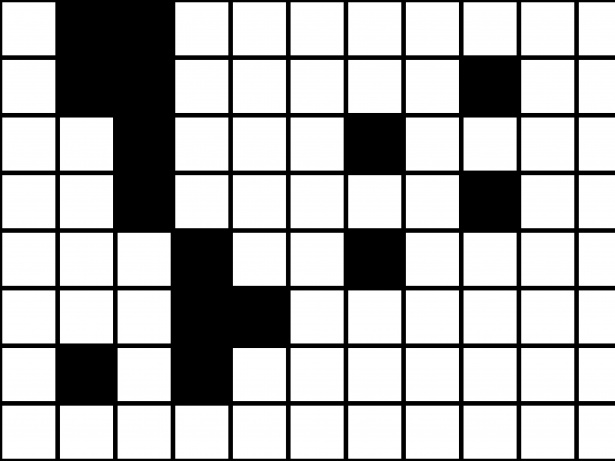I’m not sure when it happened, but I do know how it happened. I realized that I could download issues of The New Yorker from my local library via the Libby app. Paging through an issue and feeling a strange sort of pretentious joy I discovered the crossword at the back. I took a screenshot on my iPad and started marking it up with my Apple Pencil. I’ve been hooked ever since.
I’ve made a point over the last few months to do each week’s crossword puzzle. Technically The New Yorker publishes a new puzzle on their website everyday, but the magazine only includes one of these. I enjoy the random selection of the print issue. The difficulty varies wildly. Occasionally there are themed puzzles, like this week’s where most of the clues alluded to climate issues. The only thing you can count is a consistent sense of whimsical humor and lots of wordplay.
Much like the magazine itself the crossword clues are incredibly ecclectic. Its extremely rare that I make it through a whole puzzle without looking up at least one obscure fact. This week it was the name of an actor from the 2000s sitcom My Name is Earl. Ironically, I was a volunteer street team member during the marketing campaign surrounding that show’s first season. However, I totally forgot the name of the Earl’s ex-wife (Joy) and the Emmy winning perfomer in the role (Jaime Pressly). Last week I had to look up an obscure symptom of malaria.
I love the feeling of opening up a puzzle and immediately knowing the answer to some obscure music or film related clue. It feels like I got one over on the puzzle writer. On the flipside, there’s no smaller infuriation than getting stuck on a block of words because of one word you feel you should know, but just can’t grasp. Or worse, realizing you’ve misspelled the name of a city, country or language that has subsequently thrown off all of your guesses at the surrounding words.
The editors of The New Yorker helpfully label the level of difficulty you can expect from each puzzle. I’ve found that their “lightly challenging” puzzles take me less than 15 minutes. I typically complete those in between meetings at work. The “moderatly challenging” puzzles usually take up half of a lunch break or a rerun of The Simpsons. Truly challenging puzzles require a full morning and a french press full of steaming hot coffee. As you can tell, I don’t have a real routine for these puzzles. I just sort of squeeze them into the week randomly based on when I feel like working on them and how long I think each one will take. That spontaneity has helped to keep it interesting.
More than anything though, its nice to have this simple pleasurable little challenge in my week. It keeps my mind fresh by encouraging a bit of lateral thinking. And it does provide a little air of sophistication to the mundane moments of the day, which I’ve always been a sucker for.
